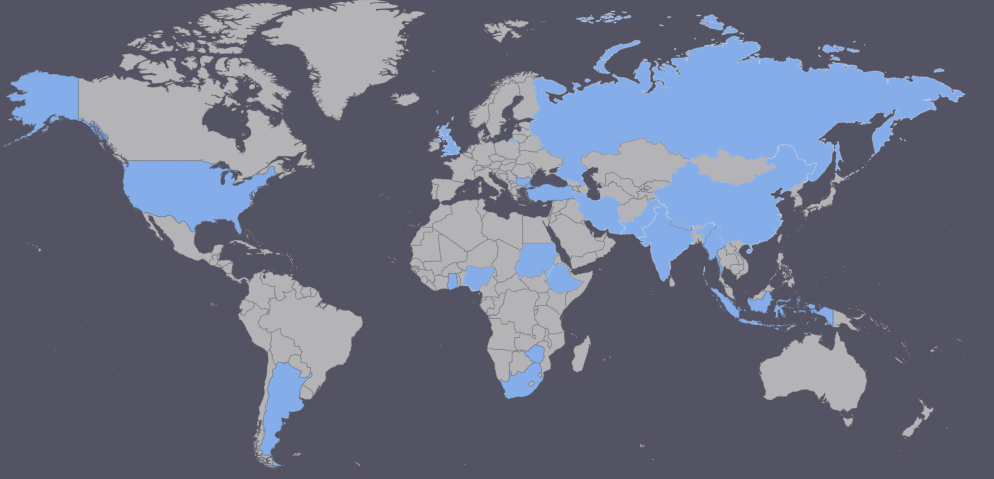Characterization of Baryte from Torkula and Kaseyo of Guma Local Government Area, Benue State, Nigeria
Keywords:
Baryte, Torkula, Kaseyo, Specification, ContaminationAbstract
Samples from the baryte mineral deposit at Torkula and Kaseyo of Guma local government area, Benue, Nigeria were analyzed for their physical, chemical and mineralogical properties, such as hardness, specific gravity etc. The elemental composition was determined by the use of x-ray Fluorescence (XRF) and mineralogical analysis was done by the use of X-ray powder diffraction (XRD). The chemical analytical results indicate the following range of values for the oxides; SiO2 (15.55 % - 15.60 %), Fe2O3 (0.27 % - 0.29 %), BaO (71.46 % - 70.87 %), TiO2 (1.60 % - 1.58 %), CaO (0.09 % - 0.10 %), P2O5 (0.01 % - 0.01 %), K2O (0.03 % - 0.04 %), MnO (0.06 % - 0.05 %), MgO (0.03 % - 0.04 %), Na2O (0.07 % - 0.07 %), Cu2O (0.05 % - 0.06 %), RbO (0.07 % - 0.06 %), ZrO (0.08 %), Cr2O3 (0.1 % - 0.12 %), Al2O3 (1.31 % - 1.28 %). The mineralogical analysis shows the presence of calcite, albite, hematite, quartz, kaolinite and montmorillonite. Quartz and kaolinite were predominant. The baryte from both Torkula and Kaseyo were considered good grade for use as drilling mud when compared with the American Petroleum Institute (API) standards. They also compare reasonably well with the American Society for Testing and Materials (ASTM) standard for applications in glass, pharmaceuticals, paint and chemical production. However, the baryte will require a beneficiation process to reduce the concentration of the silica (SiO2) content.
References
Ene, E.G., Okogbue, C.O., Dim, C.I.P., 2012. Structural styles and economic potentials of some barite deposits in the Southern Benue Trough, Nigeria. Romanian Journal of Earth Sciences 86 (1), 27-40.
Isa, H., 2007. Chemical oxides analysis from Azara Baryte. African Journal of Pure and Applied Chemistry 1 (2), 015-017.
Moore, D.M., Reynolds, R.C., 1989. X-Ray Diffraction and the Identification and Analysis of Clay Minerals, New York: Oxford University Press, Inc. 332 pp.
Obaje, N.G., 2009. Geology and Mineral Resources of Nigeria, London: Springer Dordrecht Heidelberg, pp 5-14.
Oden, M.I., 2012. Baryte veins in the Benue trough: Field characteristics, the quality issue and some tectonic implications. Environment and Natural Resources Research 2 (2), 1-11.
Offodile, M.E., Reyment, R.A., 1977. Stratigraphy of the Keana-Awe Area of the Middle Benue, Nigeria. Bulletin Geological Institutions University Uppsala 7, 37-66.
Offodile, M.E., 1976. The Geology of the Middle Benue, Nigeria. Ph.D. Thesis. University of Uppsala, Sweden. 166p.
Olusegun, F., Yaya, I., Jude, E., 2015. Characterizing barite from Bukkuyum local government area of Zamfara state of Nigeria, using Empyrean diffractometer DY 674 (2010) for XRD phase analysis of the powdered sample. World Academic Research Journals 1 (2), 6-9.
Tate, B.R., 1959. Geological Survey of Nigeria Report, No. 1266.
Tanko, I.Y., Adam, M., Shettima, B., 2015. Petrology and Geochemistry of Barite Mineralisation Around Azara, North Central Nigeria. International Journal of Scientific & Technology Research 4 (5), 44-49.
Downloads
Published
Issue
Section
License
Copyright (c) 2021 Peter Bassey; Okpeseyi Isaac Imasuen, Oziegbe Ohkeguai

This work is licensed under a Creative Commons Attribution-NonCommercial-NoDerivatives 4.0 International License.
The authors keep the copyrights of the published materials with them, but the authors are aggee to give an exclusive license to the publisher that transfers all publishing and commercial exploitation rights to the publisher. The puslisher then shares the content published in this journal under CC BY-NC-ND license.



